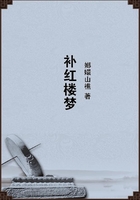The Scales of Satiation If we were to follow out the course of satisfaction of a want, and mark every separate act of satisfaction with the value that accompanied it, we should obtain a diminishing scale, the zero of which would be reached with full satisfaction or "satiation," while its higher point would correspond with the first act of satisfaction. If we had a common and exact measure for desire and non-desire, we might be able to put into figures the "satiation scale" of every want, and so compare the scales with each other. We are far from having that. But we are able to say quite positively that there are great disparities between the individual scales. It is not only that the higher points of such scales differ, and differ to an extraordinary degree, as the experience of every one sufficiently shows, but that, in the scales, the degrees between one act and the next are very different. There are many wants which almost leap from the point of highest desire to that of full satisfaction -- such, for instance, as the coarser needs of daily life. There are others which, although little felt to begin with, continue for long periods without any very perceptible diminution of their strength, -- as, for instance, many of the finer wants. Even as regards the individual want the decrease of desire is frequently quite irregular -- decreasing more slowly now at the beginning, now at the end of the scale. It must not in the least be expected that every scale will present all the different degrees of desire between which it is possible to distinguish. Assuming the possibility of distinguishing between one hundred different degrees of intensity of desire on the whole, we should certainly find no single scale that would show exactly all the hundred degrees; each would miss one, or another, or even many of the degrees; we should not perhaps find any scale which would regularly move, say, ten degrees at a time. Individual scales are, indeed, likely to be formed with considerable irregularity, and we shall find such a series as 100, 90, 80, 10, 0; or 20, 14, 5, 3, 2, 1, 0, and so on.
This statement, rude and imperfect as it is, will be found of great use in what follows. We shall have to turn back to it at several important points. Even here, it gives us a first suggestion of how one of the fundamental difficulties of the problem of value may be overcome; that, namely, arising from observation of the contradiction between value and usefulness. Afew words will make this clearer. A sensation of want which belongs to a very important class of wants may nevertheless not possess any great importance. The importance of the entire class is measured by the entire scale of satiation, especially by its highest degree. But the importance of every separate sensation of desire is measured by some particular and possibly low point upon the scale, according to the condition of satisfaction which has already been reached. The want for food, measured by its class, is more important than that for adornment or finery, but none the less may the individual sensations of vanity, in the first stages of their satisfaction, be far stronger than the desire for food, supposing the latter desire to be satisfied for the time being.
Classes of goods correspond to classes of wants, and judgments concerning the importance of classes of wants will correspond with judgments on the usefulness of classes of goods.
But the single commodity need no more realise the usefulness of its class than the separate sensation of desire need realise the importance of its class. The last course eaten by one who has almost dined has a comparatively small utility, although it contains in itself the property of saving from the pangs of hunger. Suppose that one has a sufficiently large number of goods of the highest usefulness, some of them can be put only to a very trifling use, and, indeed, if there is a superfluity of them, he will have no use whatever for that part of the supply which is in excess of the demand.
In economic life we have to do not only with classes of wants and classes of goods, but also with the state of subjective satisfaction already reached, or the supply. We cannot, therefore, judge of goods simply by their usefulness; we must judge by the amount of use attainable in the individual case;and, consequently, the value of goods must be kept at least as distinct from their usefulness as the use to which we put them is.















